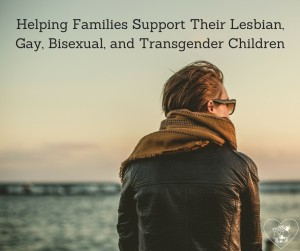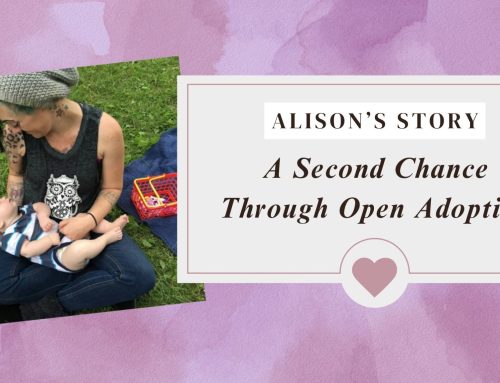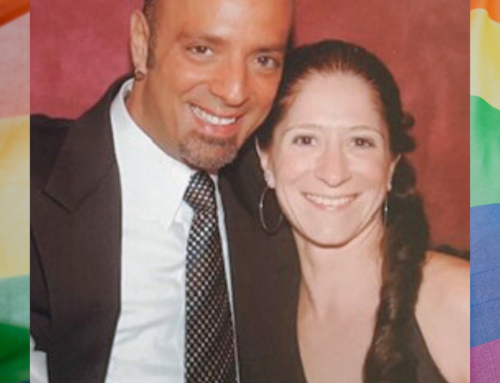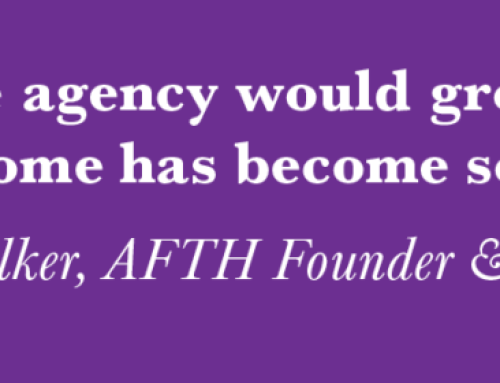As Adoption From The Heart continues to explore LGBT resources made available by the Human Rights Campaign and their All Children All Families initiative, we delved deeper into a practice brief from San Francisco State University. Caitlin Ryan, Ph. D., A.C.S.W., Director of the Family Acceptance Project at the school developed a practice brief for families, caretakers, and providers to:
- Provide basic information to help families support heir lesbian, gay, bisexual, and transgender children;
- Share some of the critical new research from The Family Acceptance Project (FAP) at San Francisco State University. This important new research shows that families have a major impact on their LGBT children’s health, mental health, and well-being; and
- Give families and LGBT youth hope that ethnically, religiously, and socially diverse families, parents, and caregivers can become more supportive of their LGBT children.
In the following blog post we summarized some of the main points of the brief and include resources for families.
LGBT Adolescents
Fear of rejection and serious negative reactions kept many LGB adults from openly sharing their lives. Research on adolescents over the past 20 years shows that sexual orientation—a person’s emotional connection and attraction to another person—develops early. In fact, research shows that both gay and straight children have their first “crush” or attraction to another person at around age 10. Adolescents are much more likely to be open about their gay or transgender identity when they are not afraid of rejection, ridicule, or negative reactions from family and friends.
Conflict and Rejection
Communication and lack of understanding about sexual orientation and gender identity can lead to fighting and family disruption that can result in an LGBT adolescent being removed from or forced out of the home. Many LGBT youth are placed in foster care, or end up in juvenile detention or on the streets, because of family conflict related to their LGBT identity. These factors increase their risk for abuse and for serious health and mental health problems.
Compared with LGBT young people who were not rejected or were only a little rejected by their parents and caregivers because of their gay or transgender identity, highly rejected LGBT young people were:
- More than 8 times as likely to have attempted suicide;
- Nearly 6 times as likely to report high levels of depression;
- More than 3 times as likely to use illegal drugs; and
- More than 3 times as likely to be at high risk for HIV and STDs.
Some Family Behaviors that Increase Your LGBT Child’s Risk for Health and Mental Health Problems
Behaviors to Avoid
- Hitting, slapping or physically hurting your child because of their LGBT identity
- Verbal harassment or name-calling because of your child’s LGBT identity
- Excluding LGBT youth from family events and family activities
- Blocking access to LGBT friends, events, and resources
- Blaming your child when they are discriminated against because of their LGBT identity
- Pressuring your child to be more (or less) masculine or feminine
- Telling your child that God will punish them because they are gay
- Telling your child that you are ashamed of them or that how they look or act will shame the family
- Making your child keep their LGBT identity a secret in the family and not letting them talk about their identity with others
Some Family Behaviors that Reduce Your LGBT Child’s Risk for Health and Mental Health Problems & Help Promote Their Well-Being
Behaviors that Help
- Talk with your child or foster child about their LGBT identity.
- Express affection when your child tells you or when you learn that your child is LGBT.
- Support your child’s LGBT identity even though you may feel uncomfortable.
- Advocate for your child when he or she is mistreated because of their LGBT identity.
- Require that other family members respect your LGBT child.
- Bring your child to LGBT organizations or events.
- Connect your child with an LGBT adult role model to show them options for the future.
- Work to make your congregation supportive of LGBT members, or find a supportive faith community that welcomes your family and LGBT child.
- Welcome your child’s LGBT friends & partner to your home and to family events and activities.
- Support your child’s gender expression.
- Believe your child can have a happy future as an LGBT adult.
Guidance for Providers
Providers who work with LGBT children, youth, and families should:
- Identify community and online resources for LGBT youth and families to teach parents and caregivers how to help their LGBT children. Parents and caregivers need access to positive family role models to help learn new ways to support and care for their LGBT and gender-variant children.
- Ask LGBT adolescents and those who are questioning their sexual orientation or gender identity about how their family reacts to their identity.
- Provide supportive counseling, as needed, and connect youth with LGBT community resources and programs.
- Use the FAPrisk screener (a six-question tool) to identify the level of family rejection and related health risks in LGBT youth. Refer and follow up with families, as needed, to provide education and family counseling.
- Tell parents that negative reactions to their adolescent’s LGBT identity can have a serious impact on their child’s health and mental health. Encourage parents and caregivers to decrease rejecting behaviors that increase their LGBT children’s risk for health and mental health problems (see page 5 for a list of rejecting behaviors that put LGBT youth at high risk).
- Help families identify supportive behaviors that help protect against risk and help promote their LGBT child’s well-being (see page 6 for a list of behaviors that help promote well-being for LGBT youth).
About the Family Acceptance Project
The Family Acceptance Project (FAP) is a community research, intervention, education, and policy initiative started in 2002. FAP studies how family acceptance and rejection affect the health, mental health, and wellbeing of lesbian, gay, bisexual, and transgender (LGBT) youth. Results are used to (1) help diverse families decrease rejection and provide support for their LGBT children to decrease their children’s risk and to promote their well-being; (2) strengthen families and help maintain LGBT youth in their homes; and (3) develop a new family-related model of prevention and care for LGBT children and adolescents for use in a wide range of settings. FAP is affiliated with San Francisco State University. The work is carried out with guidance from health and mental health providers, families, youth, and community advocates.
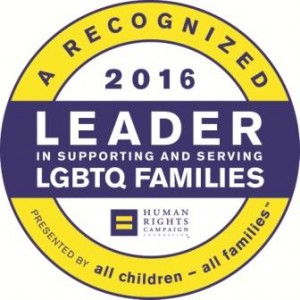
Adoptions From The Heart is thankful for the work that the HRC and FAP has done and for providing the information in this blog post. We urge all readers to learn more about the Family Acceptance Project here: http://familyproject.sfsu.edu/
And to read the above summarized practice brief in full here: http://gucchd.georgetown.edu/products/LGBT_Brief.pdf

